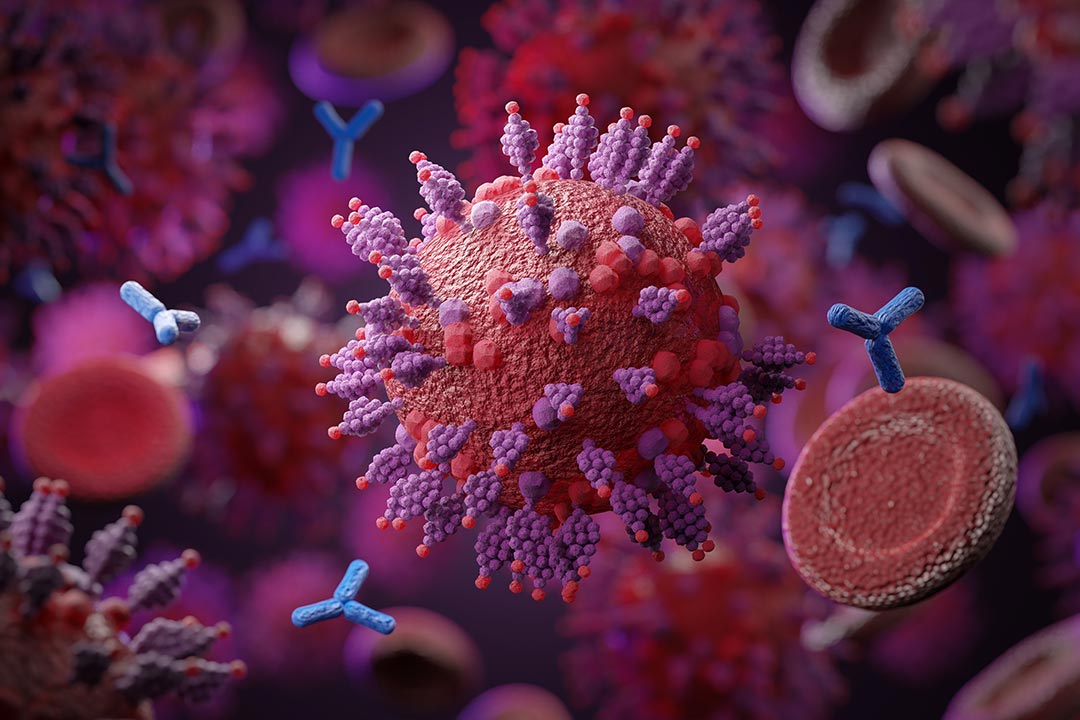How Omicron could make other variants less dangerous
Research from South Africa has found another way in which Omicron could replace Delta and potentially make it less dangerous by boosting immunity to the latter variant.
- 6 January 2022
- 3 min read
- by Priya Joi

What is the research about?
As the most contagious COVID-19 variant of concern to so far emerge, Omicron is spreading rapidly, and fast replacing Delta as the most dominant variant. But speed may not be the only factor allowing it to outcompete other variants. A new study suggests that when people develop immunity to Omicron it also protects against Delta, which would limit Delta’s ability to spread.
Omicron can produce immunity able to neutralise Delta as well, making re-infection with Delta less likely, whereas immunity from Delta provides only limited protection against Omicron, meaning Omicron may re-infect individuals with a prior Delta infection.
What did the researchers do?
In a paper that is not yet peer reviewed, researchers studied the immunity developed to the latest, highly transmissible, variant of concern – Omicron – in both fully vaccinated and unvaccinated people (a total of 33 participants) in South Africa. They enrolled people soon after the onset of symptoms, during the country’s ongoing Omicron infection wave, and looked at their ability to neutralise both the Omicron and Delta variants of the virus.
What did they find?
After confirming that all the participants were infected with Omicron, the scientists looked at how the antibodies of infected people could neutralise the virus. What they found was that, after 14 days, not only did their ability to neutralise Omicron increase by up to 14.4 times, but so did their ability to neutralise Delta, by as much as 4.4 times. By contrast, say the researchers, infection with Delta does not boost protection against previous variants, like Beta, nor vice versa.
Have you read?
What does this mean?
This implies that Omicron can produce immunity able to neutralise Delta as well, making re-infection with Delta less likely, whereas immunity from Delta provides only limited protection against Omicron, meaning Omicron may re-infect individuals with a prior Delta infection. The researchers say “these results are consistent with Omicron displacing the Delta variant”.
There is a caveat, however. The number of people studied here was small and the researchers suggest some might have been previously infected with COVID-19: “Therefore, it is unclear if what we observe is effective cross-neutralisation of Delta virus by Omicron elicited antibodies, or activation of antibody immunity from previous infection and/or vaccination.”
It is still not entirely clear whether Omicron is less pathogenic than Delta, and to what extent. But if it is and if this research bears out, then as Omicron becomes more dominant it could mean that COVID-19 transitions into a less harmful disease, unless another more harmful and more contagious variant emerges that outcompetes Omicron.








